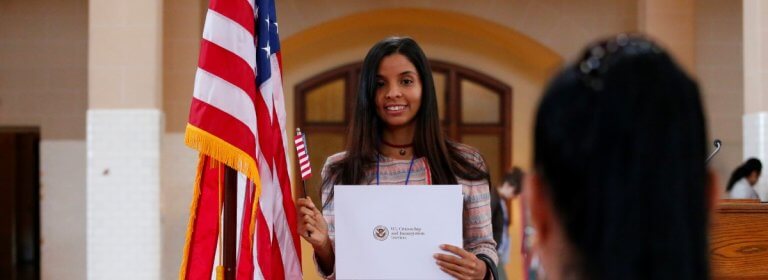
Many international students in the US long for their own version of the American Dream.
For a long time, they have favoured the H-1B work visa – a temporary employment visa which allows them to transition from their F-1 student visa status to a H-1B work visa, en route to a green card.
The downside, however, has been the quota imposed to the number of H-1B work visas granted each year: 65,000 for applicants with a bachelor’s degree or equivalent, and 20,000 for those with a master’s degree or higher.
Since the demand for H-1B work visas is high, the US government employs a lottery system to choose successful candidates. What this “lottery” actually means is a “computer-generated random selection process to select enough H-1B petitions to meet the congressionally-mandated cap and the US advanced degree exemption, known as the master’s cap” for a particular fiscal year.

Many international students want to start a career and a new life in the US, but it is notoriously hard to get selected by the H-1B visa lottery process. Source: AFP/Kena Betachur
While this sounds like a process that depends on chance, there are some ways to increase your chances of getting selected.
Stilt, a FinTech company that provides credit to immigrants and the underserved, advises applicants to apply once, though they did not dismiss the theoretical possibility that having more applications will give you a better chance of success in the lottery system.
According to Immigrate to America, run by immigration attorney Danielle Nelisse:
“The law allows a foreign national to be named in more than one cap-subject H1B petition. In other words, two unrelated companies can file a H1B cap-subject petition for the same person. They do not have a way of finding out about each other.”
Before you start requesting multiple employers to petition for you, take note that there are certain limitations and conditions. Firstly, one employer cannot submit multiple applications for the same employee – only one application will be accepted. Multiple applications from affiliated companies will be rejected too, as well as applications for the same individual for an identical end client project. This applies even if they come from completely different employers.
Stilt also advises applicants to file their petitions as early as possible, ensuring their employer pays for the H-1B application fee and checking that their employer meet USCIS requirements.
Chances increase 16 percent for advanced degree holders
For this year, applicants with master’s degrees or higher level degrees from institutions of higher education will also have a 16 percent increased chance of being selected. This is because the US Citizenship and Immigration Services has proposed a rule that will change the selection process.
More changes to H-1B visa to come #HigherEd #H1B https://t.co/Plf0DDbcPY pic.twitter.com/qJ9wGfOqr5
— Study International (@Study_INTNL) December 26, 2018
Under the proposal, all registrations — including those from people who are eligible for the advanced degree exemption — are applied to the regular cap of 65,000 first. After that, USCIS will select from the remaining to fill the degree cap.
“[The Department of Homeland Security] also proposes to change the process by which USCIS counts H-1B registrations (or petitions, if the registration requirement is suspended), by first selecting registrations submitted on behalf of all beneficiaries, including those eligible for the advanced degree exemption. USCIS would then select from the remaining registrations a sufficient number projected as needed to reach the advanced degree exemption,” the Homeland Security Department wrote.
“Changing the order in which USCIS counts these separate allocations would likely increase the number of beneficiaries with a master’s or higher degree from a US institution of higher education to be selected for further processing under the H-1B allocations.”
In a statement to CNN Business, USCIS spokesman Michael Bars said this will ensure “more of the best and brightest workers from around the world come to America” under the program.
Liked this? Then you’ll love…
More changes to H-1B visa to come
Proposal for H-1B visas to favour advanced US degrees underway







